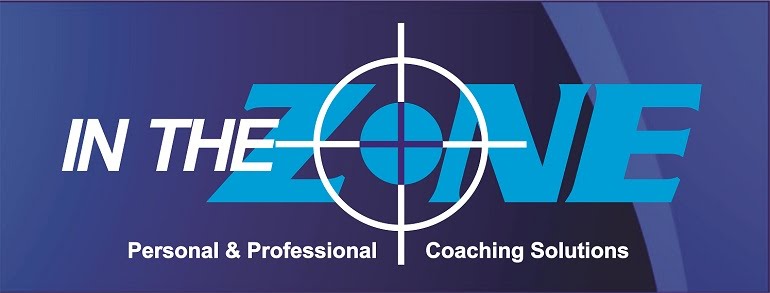Lately, there has been quite a bit of tragedy in our area.
- A man was shot by a disgruntled customer.
- Two high-school kids were saverely injured in a car crash, one ultimately died.
Many times, we find ourselves searching for the answers to why these things happen or what we should do now.
When faced with hard and difficult times, more often than not, our first reaction is to shut down.
We then pull ourselves up and figure out a way to move on. As we struggle to get back to our daily routine depending on the individual or events that occurred, it may take weeks, or even months before we find any strength to move forward just a little.
Now, I am not claiming to be a psychiatrist or anything like that, but I have not only gone through my own challenges, but I have meet and interviewed many people on this subject as well.
The reason it's so hard to move forward is the questions that we ask ourselves.
Now, it’s understandable, at first, to think and ask good questions. The goal is not to keep asking the same questions over and over again. For example, let’s say you lost your job. Some might ask Why did this happen to me? or What am I going to do now? Those are common and often the first things that come to mind.
In order to get better answers in life, you need to ask better questions:
- What did I learn from this experience?
- What job would I love to go after now that I have this opportunity?
You see, what's most important is the need to develop the skill to focus on the solution, not the problem.
I'm sure a lot of people will say this is easier said than done. Yes, but you need to understand that this is a skill, not something you are born with.
With any skill, it can be learned over time. I am a father to two amazing children (Andrew 7, Allison 3). They are my world and I would never want to think about something happening to them. So I can’t speak from the perspective of losing a child, but I can give you an example of someone who did and what happened.
I am not sure if you are aware, but there are their five stages of grief:
- Denial: “This can’t be happening to me.”
- Anger: “Why is this happening? Who is to blame?”
- Bargaining: “Make this not happen, and in return I will ____.”
- Depression: “I’m too sad to do anything.”
- Acceptance: “I’m at peace with what happened.”
I believe there is a sixth stage and that is: Action or Activism. For some, when they get to this stage, they are committed to making sure that whatever event happened to them does not happen to anyone else ever again. The one person that comes to mind for me is Jack Walsh.
Jack’s son Adam was abducted at the age of 7, and 16 days later, he was found murdered. For the Walsh family, once they got through the five stages, they quickly went to work on stage six, and took massive and immediate action to make a change.
The Walsh family soon began a campaign to help missing and exploited children. Despite bureaucratic and legislative problems, John and Revé's efforts eventually led to the creation of the Missing Children Act of 1982 and the Missing Children's Assistance Act of 1984.
Following the crime, the Walsh family founded the Adam Walsh Child Resource Center, a non-profit organization dedicated to legislative reform. The centers originally located in West Palm Beach, Florida; Columbia, South Carolina; Orange County, California; and Rochester, New York; merged with the National Center for Missing and Exploited Children (NCMEC), where John Walsh serves on the Board of Directors.
Today, Walsh continues to testify before Congress and state legislatures on crime, missing children and victims' rights issues. His latest efforts include lobbying for a Constitutional amendment for victims' rights.
The Adam Walsh Child Protection and Safety Act (Pub.L. 109-248) was signed into law by U.S. President George W. Bush on July 27, 2006 following a two-year journey through the United States Congress and was intensely lobbied for by Walsh and the National Center for Missing and Exploited Children. Primarily, it focuses on a national sex offender registry, tough penalties for not registering as a sex offender following release into society, and access by citizens to state websites that track sex offenders.
Most importantly, the Walsh’s did something else that showed us all that this act of a mad man would not hold them hostage for the rest of their lives. After the murder of Adam, the Walsh’s had three more children: Meghan, Callahan, and Hayden. Meghan was born a year after Adam was murdered, Callahan was born in 1985, and Hayden (born 1995) is the youngest child. Revé Walsh told local newspapers at the time that "there is no substitute for Adam." A side note to this as well, John Walsh did not stop there either.
Walsh has also been the host of the FOX television show "America's Most Wanted" since 1988. He was selected as host after the completion of the program's pilot and a lengthy search. By that time, Walsh was already well-known because of the murder of his son and his subsequent actions to help missing and exploited children. Walsh continues to host the show, which is now the longest-running show of any kind in FOX history and has contributed to the capture of more than 1,000 fugitives.
What kind of questions do you think the Walsh’s asked? Ones that moved them to action or ones that kept them imprisoned in the tragedy?
Ask better questions and you will get betters answers.
Remember be positive, be real and live your life In The Zone.
To post a comment click the link provided. Comment




No comments:
Post a Comment